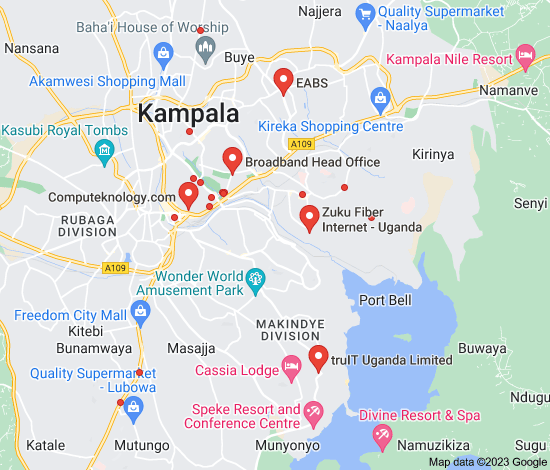advertisement
Uganda Internet Broadband Subscriptions Shoot

A statement released by Uganda Communications Commission (UCC) on Wednesday has indicated that the number of broadband subscriptions in Uganda now stands at 23.7 million after 232,000 were added between April and June 2022.
UCC said that based on a year-on-year comparison, the 12 months ended June 2022 recorded 1.9 million new broadband subscriptions, representing 8 percent year-on-year growth.
“The 23.7 million broadband subscriptions translate into a broadband penetration of 55 internet connections for every 100 Ugandans. This also signifies an increase in demand for smartphones”, reads the UCC statement in part.
UCC is optimistic that there will be a significant increase in competition within broadband service delivery and anticipates a decrease in the cost of internet services. Especially given that fixed broadband subscriptions in Uganda were reported at 38481 in 2021, according to the World Bank collection of development indicators, compiled from officially recognized sources.
Uganda fixed broadband Internet subscribers’ actual values, historical data, forecasts, and projections were sourced from the World Bank in February of 2023, according to sources at Trading Economics.
The sources add that fixed broadband subscriptions refer to fixed subscriptions to high-speed access to the public Internet (a TCP/IP connection), at downstream speeds equal to, or greater than, 256 kbit/s.
“This includes cable modem, DSL, fiber-to-the-home or building, other fixed (wired)-broadband subscriptions, satellite broadband, and terrestrial fixed wireless broadband,” adds the source.
The source points out that total broadband is measured irrespective of the method of payment, and excludes subscriptions that have access to data communications (including the Internet) via mobile-cellular networks.
“As the critical communications sector is looking to adopt broadband 4G and 5G communication technologies, there are several issues that need to be considered. In addition, from the procurement perspective, the transition to mission-critical broadband will require a series of well-planned steps,” Tim Clark, a broadband procurement expert wrote in a Tweet on Wednesday.
Mr. Clark says many current procurement models also allow device purchases from other sources. He said user organizations can run their procurements; broadband devices can be leased from IT service companies, or even purchased by individual employees.
“An essential part of creating a mission-critical device procurement specification is to fully understand the user needs. The user community will consist of multiple groups, each with its specific requirements and operational processes”, he added.